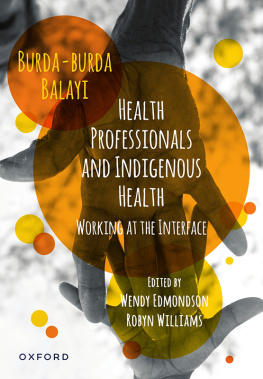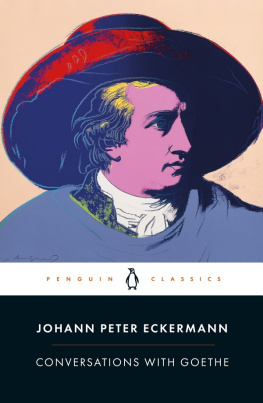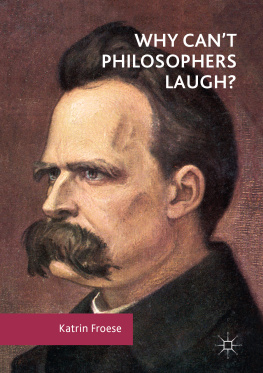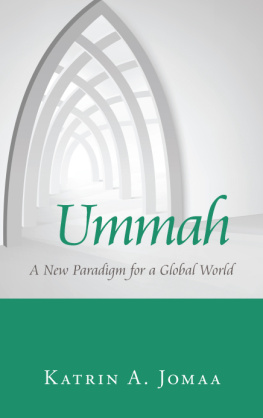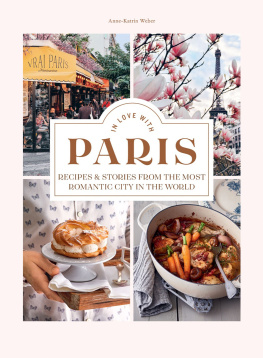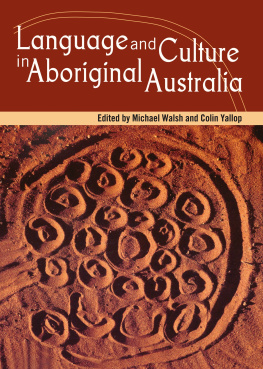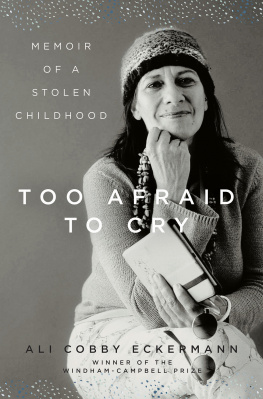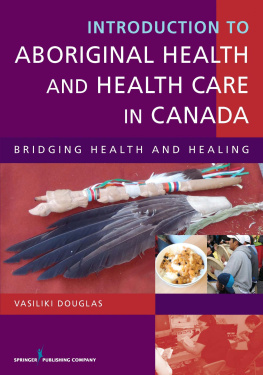Anne-Katrin Eckermann et al. - Binaŋ Goonj: Bridging Cultures in Aboriginal Health
Here you can read online Anne-Katrin Eckermann et al. - Binaŋ Goonj: Bridging Cultures in Aboriginal Health full text of the book (entire story) in english for free. Download pdf and epub, get meaning, cover and reviews about this ebook. year: 2010, publisher: Elsevier, genre: Science / Art. Description of the work, (preface) as well as reviews are available. Best literature library LitArk.com created for fans of good reading and offers a wide selection of genres:
Romance novel
Science fiction
Adventure
Detective
Science
History
Home and family
Prose
Art
Politics
Computer
Non-fiction
Religion
Business
Children
Humor
Choose a favorite category and find really read worthwhile books. Enjoy immersion in the world of imagination, feel the emotions of the characters or learn something new for yourself, make an fascinating discovery.

- Book:Binaŋ Goonj: Bridging Cultures in Aboriginal Health
- Author:
- Publisher:Elsevier
- Genre:
- Year:2010
- Rating:5 / 5
- Favourites:Add to favourites
- Your mark:
- 100
- 1
- 2
- 3
- 4
- 5
Binaŋ Goonj: Bridging Cultures in Aboriginal Health: summary, description and annotation
We offer to read an annotation, description, summary or preface (depends on what the author of the book "Binaŋ Goonj: Bridging Cultures in Aboriginal Health" wrote himself). If you haven't found the necessary information about the book — write in the comments, we will try to find it.
Binaŋ Goonj: Bridging Cultures in Aboriginal Health — read online for free the complete book (whole text) full work
Below is the text of the book, divided by pages. System saving the place of the last page read, allows you to conveniently read the book "Binaŋ Goonj: Bridging Cultures in Aboriginal Health" online for free, without having to search again every time where you left off. Put a bookmark, and you can go to the page where you finished reading at any time.
Font size:
Interval:
Bookmark:
Bina Goonj
Bridging Cultures in Aboriginal Health
Third edition
Anne-Katrin Eckermann
Toni Dowd
Ena Chong
Lynette Nixon
Roy Gray
Sally Johnson
Churchill Livingstone
Bina Goonj
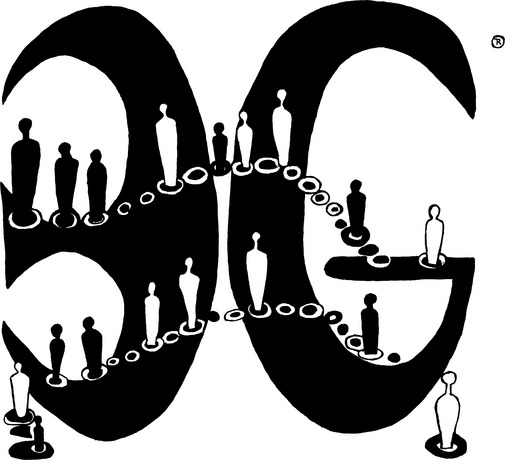
This logo, designed by Ena Chong, depicts the gulf that exists between many cultures and the potential for safe ways to bridge understanding from one culture to another. Binang Goonj is a program which symbolises this understanding and builds on it for effective cross-cultural interaction.
Enquiries regarding support material for this program, other than the text itself, should be referred to Cross Cultural Consultants.
Ph +61 7 33761150 www.binangoonj.com.au
Copyright

Churchill Livingstone
is an imprint of Elsevier
Elsevier Australia. ACN 001 002 357
(a division of Reed International Books Australia Pty Ltd) Tower 1, 475 Victoria Avenue, Chatswood, NSW 2067
This edition 2010 Elsevier Australia
First edition 1992.
Second edition 2006.
This publication is copyright. Except as expressly provided in the Copyright Act 1968 and the Copyright Amendment (Digital Agenda) Act 2000, no part of this publication may be reproduced, stored in any retrieval system or transmitted by any means (including electronic, mechanical, microcopying, photocopying, recording or otherwise) without prior written permission from the publisher.
Every attempt has been made to trace and acknowledge copyright, but in some cases this may not have been possible. Th e publisher apologises for any accidental infringement and would welcome any information to redress the situation.
Th is publication has been carefully reviewed and checked to ensure that the content is as accurate and current as possible at time of publication. We would recommend, however, that the reader verify any procedures, treatments, drug dosages or legal content described in this book. Neither the author, the contributors, nor the publisher assume any liability for injury and/or damage to persons or property arising from any error in or omission from this publication.
National Library of Australia Cataloguing-in-Publication Data
Bina Goonj: Bridging Cultures in Aboriginal Health
Bibliography.
Includes index.
ISBN: 9780729539364.
1. Aboriginal Australians--Health and hygiene 2. Aboriginal Australians--Social conditions.
3. Aboriginal Australians--Medical care.
362.849915
Publisher: Melinda McEvoy
Developmental Editor: Sam McCulloch
Publishing Services Manager: Helena Klijn
Project Coordinators: Lauren Allsop and Karen Griffi ths
Edited by Brenda Hamilton
Proofread by Pam Dunne
Design by Avril Makula
Index by Mei Yen Chua
Typeset by TNQ Book Production
Printed by 1010 Printing International Ltd.
Introduction
This is the third edition of Bina Goonj and represents the culmination of the authors 19-year-long collaboration. We began our journey in 1991, when we were drawn together to design a distance education package to familiarise non-Aboriginal health workers, including doctors and nurses, with the distinctive needs and aspirations of Aboriginal people living in rural/urban Australia. The then Commonwealth Department of Community Services and Health funded the project through its Rural Health Support Education and Training (RHSET) Program. We began the process by inviting health care professionals and Aboriginal community people to participate in a survey to identify the most important issues and concerns in Aboriginal health. On the basis of this information, available literature and our own research/experiences, we produced the teaching materials. We were also encouraged to publish our material in book form in order to make it available to a wider audience.
The first edition of Bina Goonj was published in 1992, updated in 1994, and reprinted in 1995 and 1998. Another RHSET grant in 199394 provided the Team with the opportunity to develop face-to-face cross-cultural training workshops. These workshops have reached individuals and organisations throughout Australia over the past 15 years and have done much to enhance understanding of the social and emotional wellbeing of Aboriginal peoples across Australia.
Throughout the three editions of Bina Goonj we have made reference to Aboriginal people rather than Indigenous or Aboriginal and Torres Strait Islander people. This has been a deliberate decision. The Aboriginal co-authors of this text consider themselves Aboriginal people who are descendants of specific Aboriginal nations. They do not identify with the generic term Indigenous, although they recognise that it describes people across the world who have strong ties with their land, were colonised and continue to follow cultural traditions different from those of the colonisers.
Our focus on Aboriginal rather than Aboriginal and Torres Strait Islander situations was also deliberate. Although there was Torres Strait Islander involvement in the project's inception, time constraints precluded sustained contributions. As none of the Team could claim first-hand experience of Torres Strait situations, it was decided that, in line with the principles of self-determination and community control, it would be wrong for us to speak for the needs and aspirations of this group of Australians. The Team does, however, believe that many of the principles outlined in this project have direct relevance to the health needs of the Torres Strait Islanders, and health workers and community people from these regions have adapted materials to reflect their particular situations.
Although the core of our Team has remained intact since 1991, our dear friend Mary Martin left in 1995 to pursue her work on Aboriginal Health Worker accreditation and preparation of GPs for work in community-controlled health services. Sally Johnson joined the Team in 1995 and followed through the pilot that Toni Dowd developed with colleagues in Central Australia to devise and implement their own Aboriginal Cultural Awareness ProgramKaltye-Le-Antherrentye. Over the next decade, the Team conducted cross-cultural workshops with literally hundreds of Aboriginal and non-Aboriginal health care professionals.
The second edition of Bina Goonj was published in 2006. It is a measure of the speed of change in current Aboriginal affairs that the first edition of Bina Goonj held its general currency for more than a decade, while the second edition was out of date by 2009. Clearly major, rapid policy changes, particularly from 2006 onwards, have been a response to continuing poor health, education, housing and employment statistics as well as increasing levels of violence in some communities. The cycle of disadvantage, with which many Aboriginal people have had to cope, has intensified and their life chances have been further limited.
Our Team has been active in the analysis, administration and/or delivery of health care to Aboriginal groups for a number of decades. Consequently, the materials presented here draw heavily on our experiences and perceptions, on research and government reports on Aboriginal affairs and Aboriginal health, as well as on the comments of those health care providers and community people who have shared their perceptions and concerns with us.
We began the process of material development and selection on the premise that Aboriginal people's current life chances are intrinsically linked to their past and present socio-economic, political and cultural status in Australian society. We therefore believe that it is impossible to understand Aboriginal people's health situation unless we become aware of their history since Australia's invasion in 1788, and their place in Australian society then and now. Such understanding is also essential to facilitate positive cross-cultural interaction between Aboriginal and non-Aboriginal people. We are all products of the past, which has overtly or covertly influenced our perceptions and attitudes.
Next pageFont size:
Interval:
Bookmark:
Similar books «Binaŋ Goonj: Bridging Cultures in Aboriginal Health»
Look at similar books to Binaŋ Goonj: Bridging Cultures in Aboriginal Health. We have selected literature similar in name and meaning in the hope of providing readers with more options to find new, interesting, not yet read works.
Discussion, reviews of the book Binaŋ Goonj: Bridging Cultures in Aboriginal Health and just readers' own opinions. Leave your comments, write what you think about the work, its meaning or the main characters. Specify what exactly you liked and what you didn't like, and why you think so.

